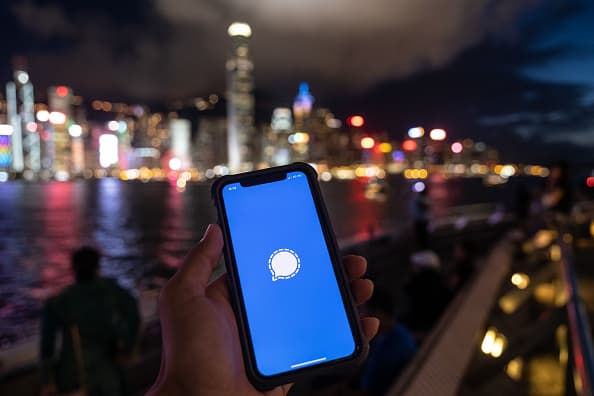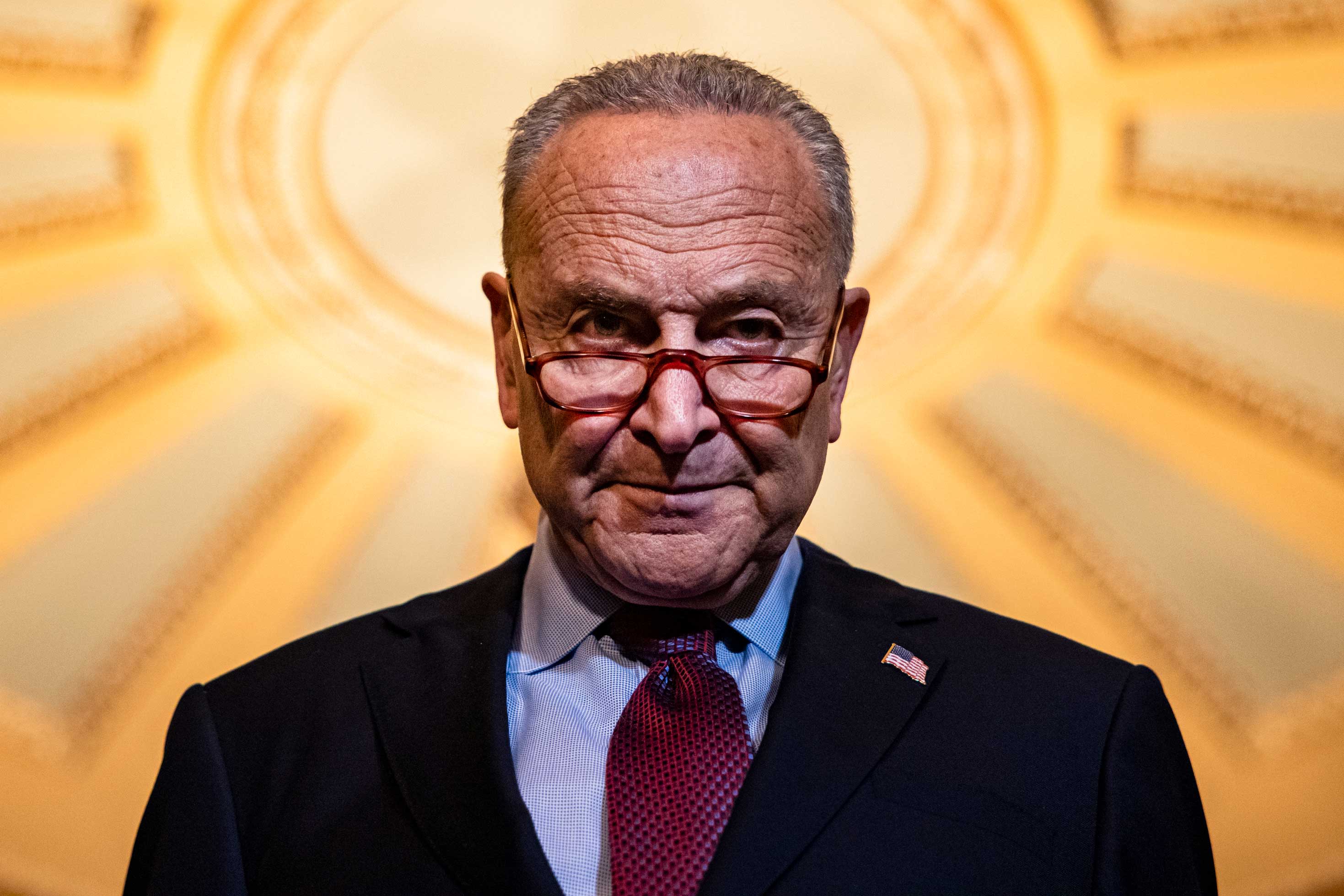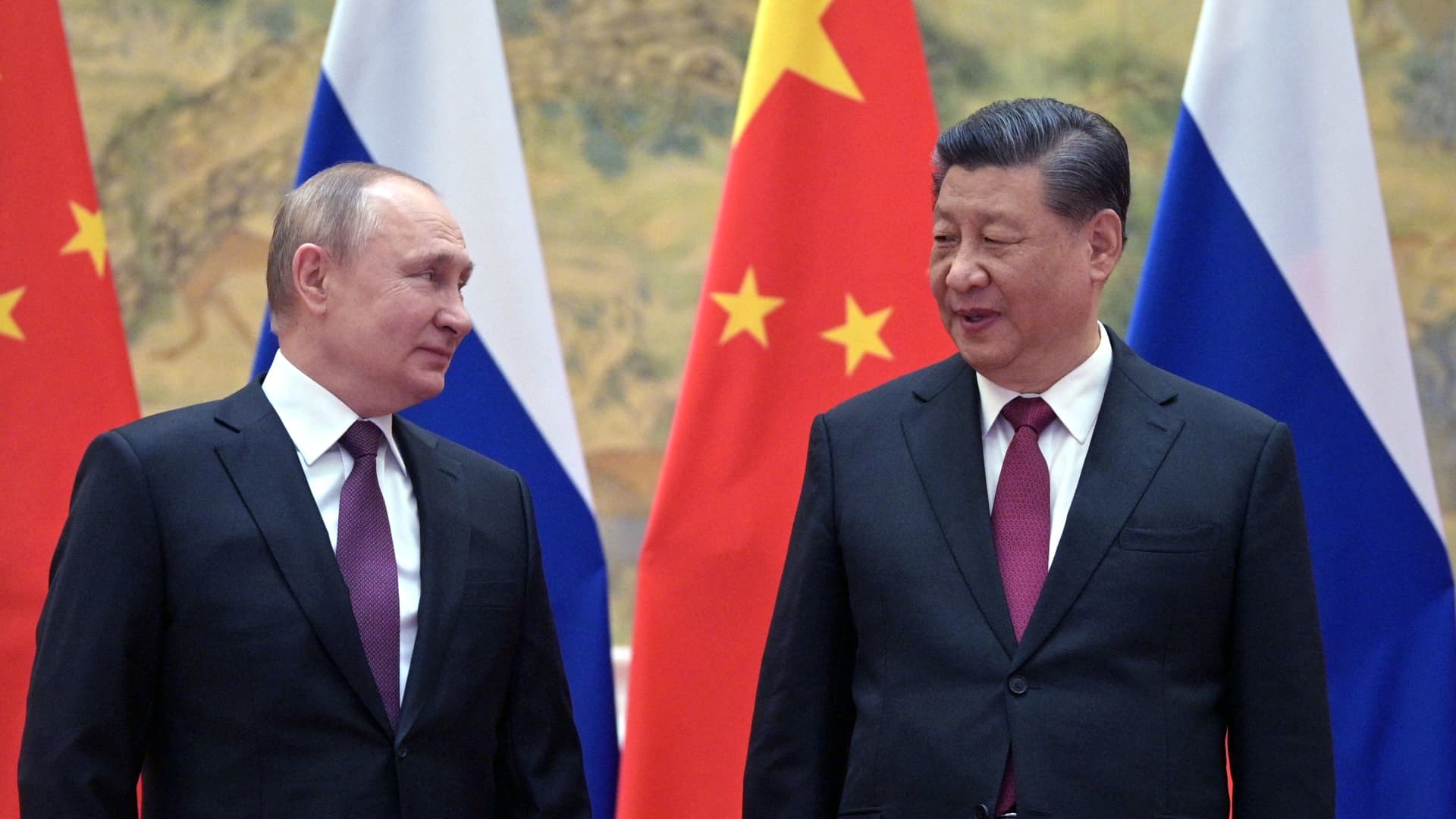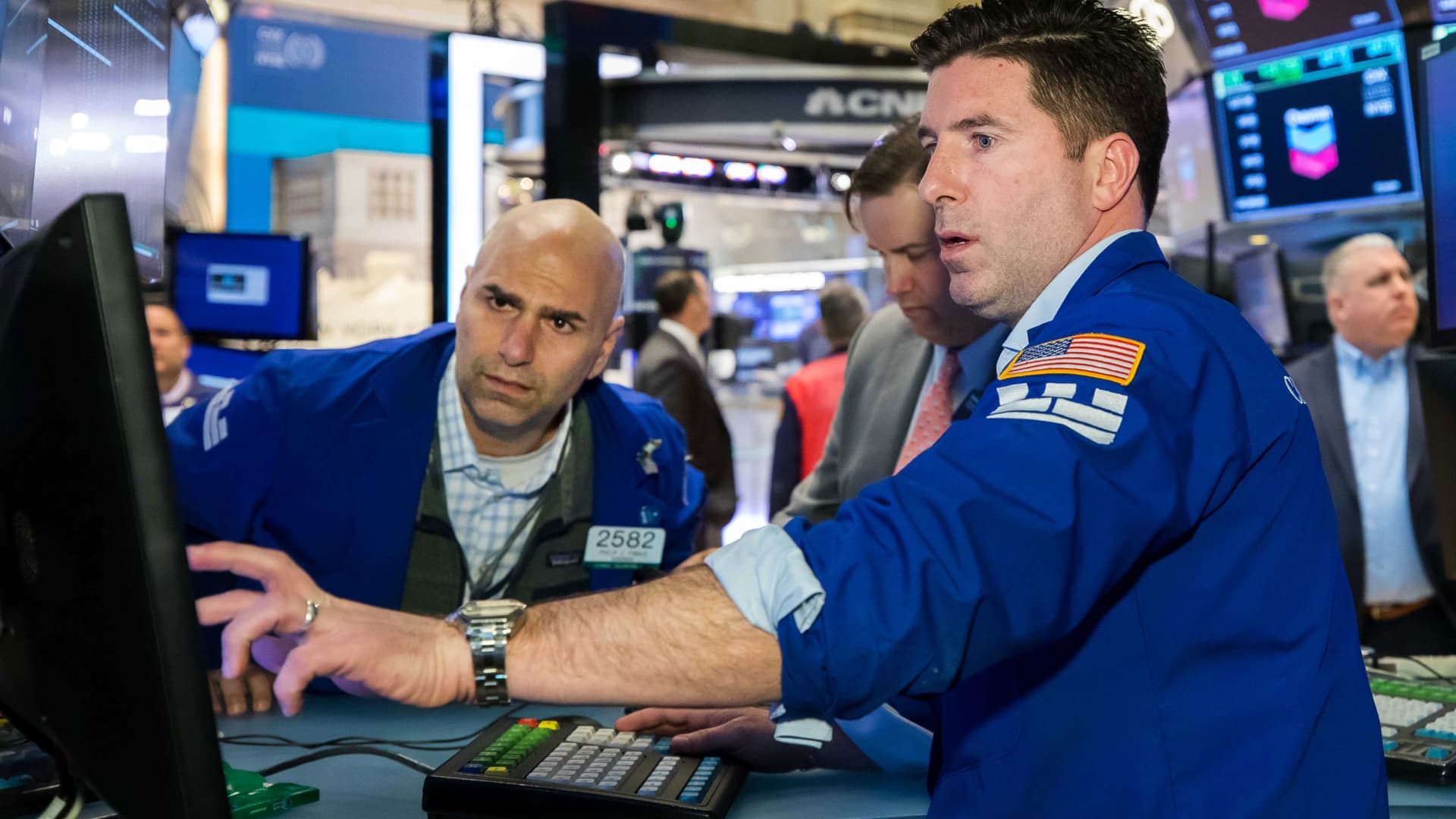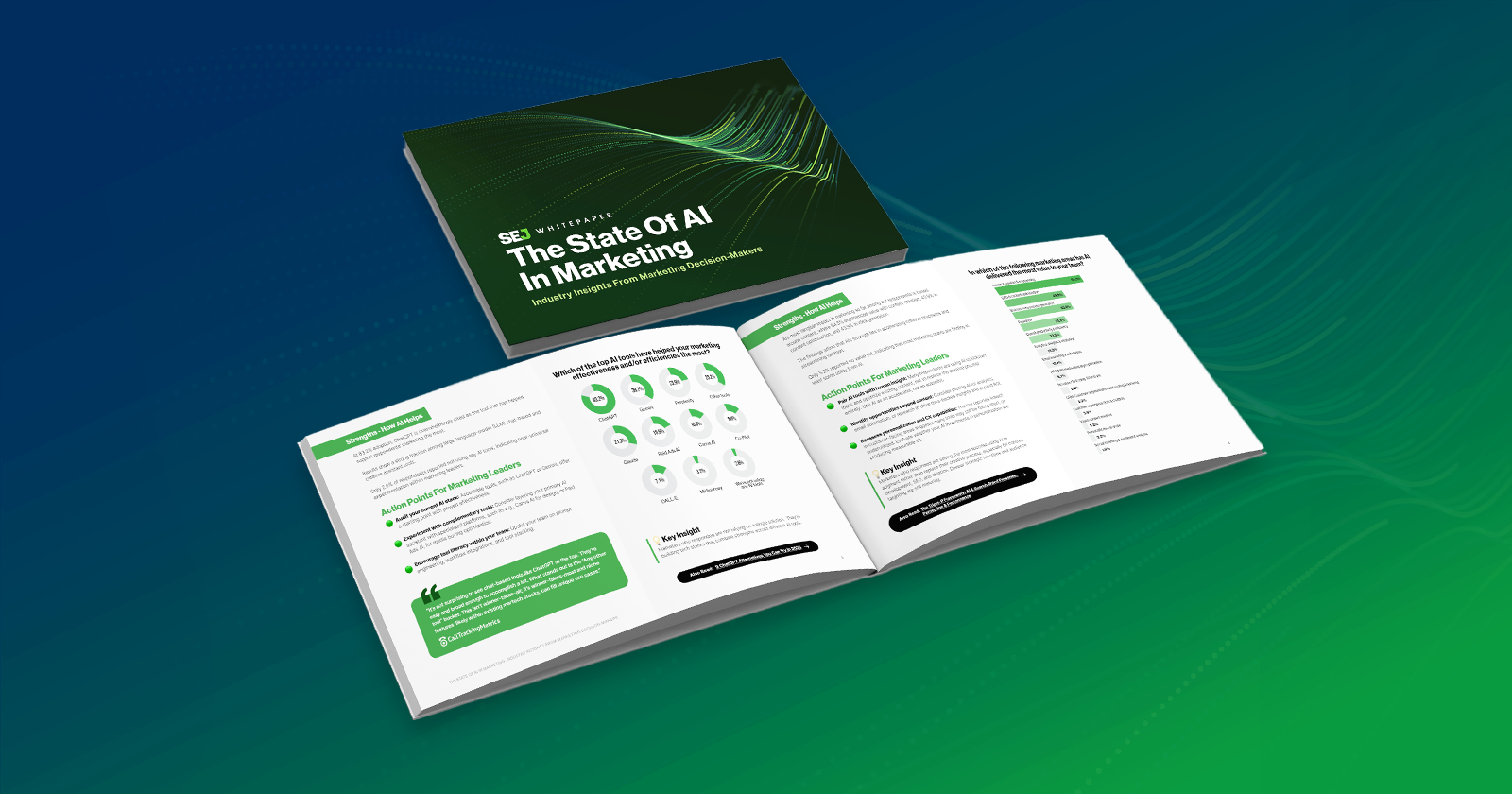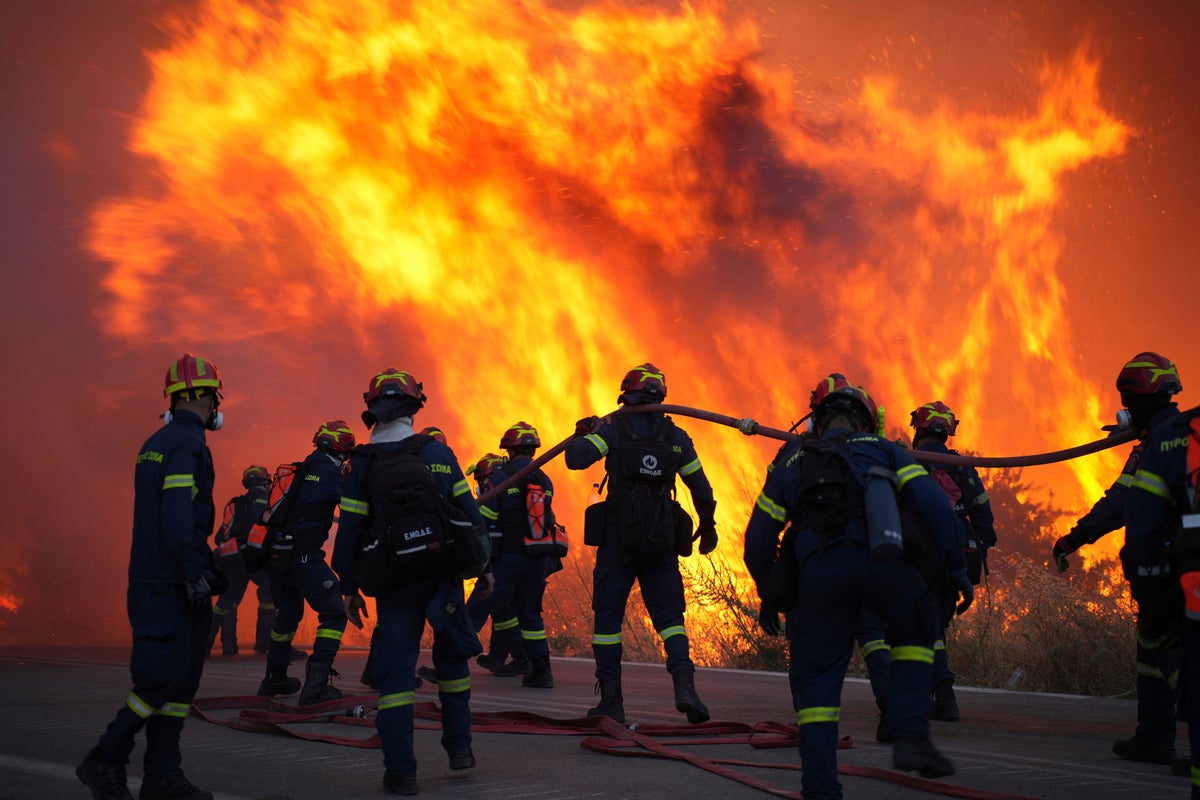Putin declares 'four new regions of Russia' as Moscow illegally annexes parts of Ukraine
The annexation follows a series of referendums that the West described as a sham.
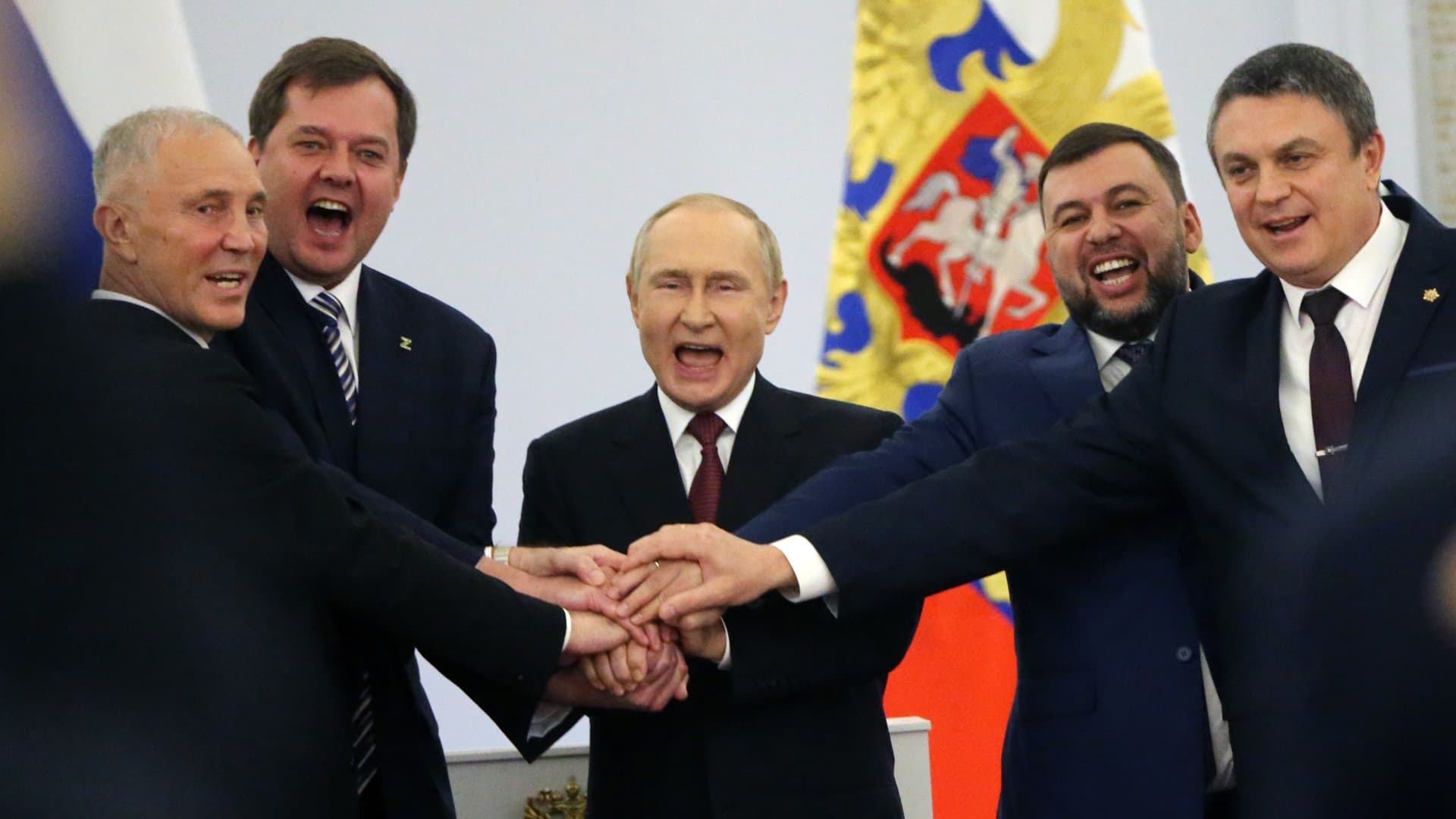
Russian President Vladimir Putin meets with Moscow-appointed heads of four Ukrainian regions, partially occupied by Russia, at the Grand Kremlin Palace on September 30, 2022, in Moscow, Russia.
Contributor | Getty Images News | Getty Images
Russian President Vladimir Putin on Friday declared four new regions of the country shortly after holding sham referendums in parts of occupied Ukraine.
"There are four new regions of Russia," Putin said in a televised ceremony from the Kremlin in Moscow, according to a translation.
"The results are known, well known," Putin said, referring to the series of votes that Ukraine and Western governments say breached international law. He claimed the results were due to the will of millions of people, saying they had the right to self-determination.
The territory being seized more than seven months into the Kremlin's war consists of two pro-Russian "republics" in Luhansk and Donetsk in the east, and in Kherson and Zaporizhzhia in the south. It is thought to make up roughly 18% of Ukraine's land, although the precise details of the boundaries were not immediately clear.
A man casts his ballot during a referendum on the secession of Zaporizhzhia region from Ukraine and its joining Russia, in the Russian-controlled city of Melitopol in the Zaporizhzhia region, Ukraine September 26, 2022.
Alexander Ermochenko | Reuters
Unsurprisingly, the votes, seen as illegitimate by Ukraine and its allies, saw a majority of people vote to join Russia.
Echoing previous claims that the West is trying to undermine Russia, Putin said, "The West is looking for new opportunities to hit us and they always dreamt about breaking our state into smaller states who will be fighting against each other."
"They cannot be happy with this idea that there is this large country with all [these] natural riches and people who will never live under a foreign oppression," he added.
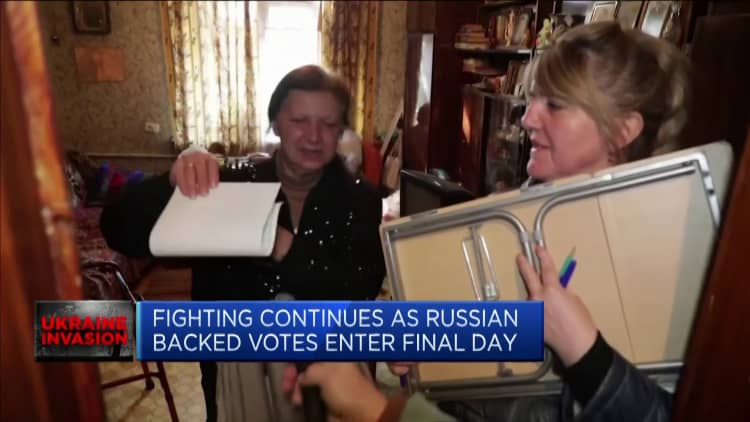
His comments come shortly after a civilian convoy in the southern city of Zaporizhzhia was hit by a Russian strike, killing at least 23 people.
Those in the convoy were heading into Russian-occupied territory to pick up their relatives, the city's governor said. Moscow has issued a statement saying the attack was carried out by Ukraine.
Nuclear threat
Ukraine said the referendums were carried out "under the barrel of a gun" and called on its international allies to immediately ramp up severe sanctions on Russia in order to deter it from annexing more territory as it did with Crimea in 2014.
Russian President Vladimir Putin gives a speech during a ceremony formally annexing four regions of Ukraine Russian troops occupy - Lugansk, Donetsk, Kherson and Zaporizhzhia, at the Kremlin in Moscow on September 30, 2022.
Dmitry Astakhov | Afp | Getty Images
Kyiv said it will not stop fighting until it has reclaimed every last inch of land lost to Russia and said it will not negotiate with the Kremlin following the so-called votes.
Moscow, for its part, has warned it has "the right" to use nuclear weapons to defend its territory and citizens if it feels there is an existential threat, or even if it's attacked by conventional weapons.
This has raised concerns that it could resort to using nuclear weapons against Ukraine now that more regions are annexed and Moscow can claim them, however falsely, as their own. One Ukrainian defense ministry official told CNBC this week that Kyiv understands the threat of such an attack is "real."
Speaking ahead of Putin's declaration that Russia has four new regions, U.N. Secretary-General Antonio Guterres said that the so-called referendums "would have no legal value and deserves to be condemned."
"It stands against everything the international community is meant to stand for," Guterres said Thursday. "It flouts the Purposes and Principles of the United Nations. It is a dangerous escalation. It has no place in the modern world. It must not be accepted."
War escalating
It is thought Moscow's latest move is likely to escalate and prolong the war even further, making it more complex to reach a peaceful resolution.
A destroyed Russian tank is seen as Ukrainian serviceman rides a tractor and tows a Russian military vehicle, amid Russia's invasion on Ukraine, near the village of Dolyna in Kharkiv region, Ukraine September 23, 2022.
Gleb Garanich | Reuters
Changes to Russia's constitution made in 2020, under Putin, mean that it is illegal for Russia to give away any part of its territory to a foreign power, meaning it is unlikely to ever willingly cede territory back to Ukraine.
All the signs point to Putin deciding to up the ante in the war, having ramped up the nuclear rhetoric and ordered a military mobilization that has seen 300,000 reservists called up, with many trying to flee the draft, to be sent to fight in Ukraine with poor training and little equipment.
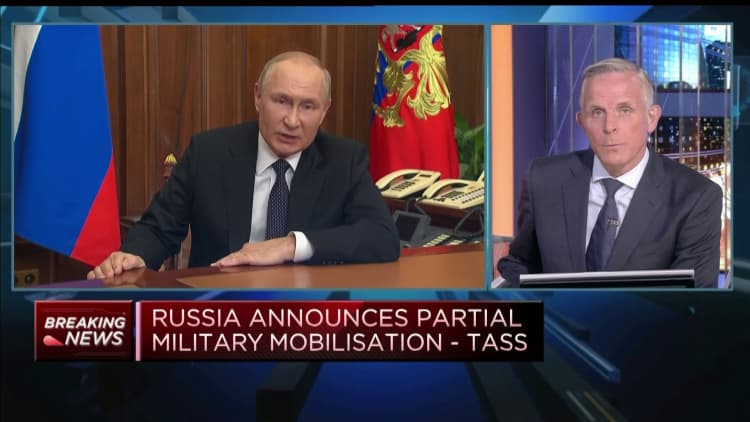
Western nations have vowed to keep supporting Ukraine, repeating the mantra that they will do so "whatever it takes," but there are fears that should the war continue for months, and years, ahead that support could wane; there are already concerns that the U.S. and Europe are running out of weapons to send Ukraine, which is largely reliant on NATO arms to keep fighting the war.
Meanwhile, Western citizens are coping with the fallout of the war in the form of higher energy and food prices, and could start to pressure their own governments to rebuild relations with giant energy and wheat exporter Moscow to ease these pressures.
Putin has "opened a conflict that is shifting international politics, roiling the global economy, remaking relations between East and West … as well as the West and Global South … for years, perhaps decades, to come," Eurasia Group President Ian Bremmer said in a speech Wednesday.
"This still-expanding conflict was, and continues to be, the design of one man, but its effects have upended lives and livelihoods in every region of our still-very-much interconnected world."
— CNBC's Natasha Turak contributed to this report.

 AbJimroe
AbJimroe 







